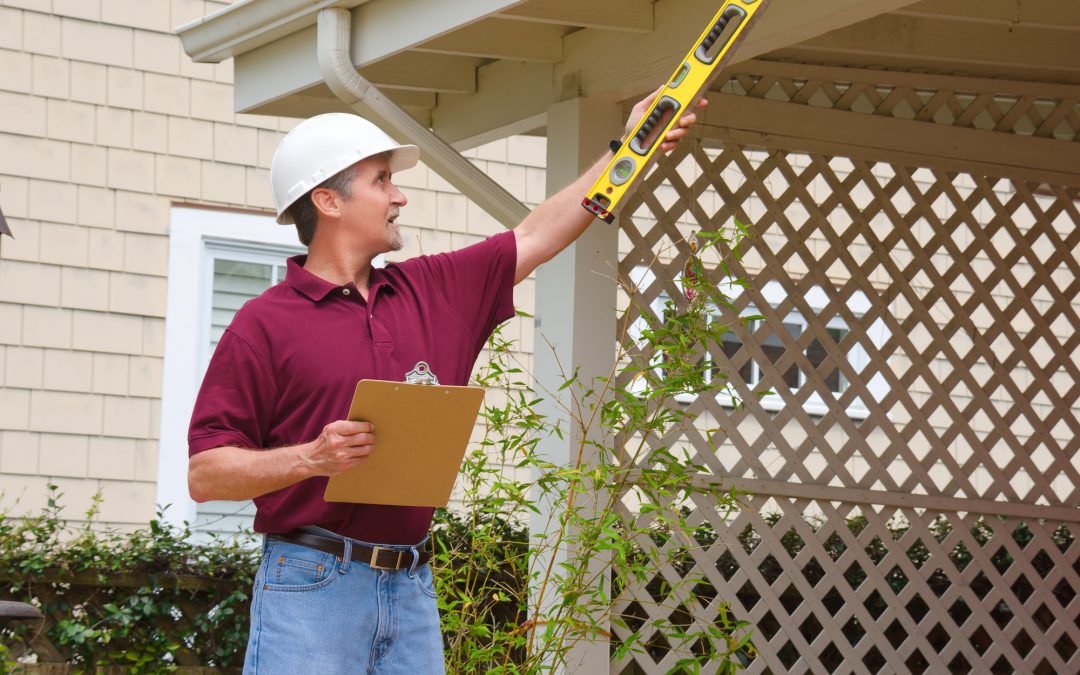Each year smart homeowners like yourself make the right choice to have a home inspection done. About 5 million home inspections get performed each year across the country.
The key to making your inspection count is finding a home inspector who knows his stuff. Where do you start though? It’s not as if you need a home inspector very often.
Follow our guide on how to find a good home inspector to help you get started. We will walk you through everything you need to look for when seeking out an inspector.
1. Ask Your Real Estate Agent
The best people to ask for advice are real estate agents. They work with inspectors on a daily basis as a part of their business.
They can give you their experiences on which inspectors do a thorough job and which ones don’t. You don’t want to choose an inspector who doesn’t have a positive reputation in the industry.
2. Are They Insured
Inspectors need to climb all over a house. This means there is a certain level of risk that comes along with the job.
Only hire an inspector that carries insurance. This will relieve the homeowner of risk in the event of an accident.
3. Their Focus is Inspections
Some inspection companies focus solely on inspections. Other companies will do inspections, repairs, and renovations.
The problem with hiring a company that does more than inspections is that there is a conflict of interest. The inspectors for these companies have the temptation to find problems that aren’t really an issue.
If you want to make repairs or renovations, do this as a separate inquiry. Bring your contractor to the home for a quote in a separate meeting.
4. What’s Included
Ask the inspector what is included in the report they provide you. You can compare inspectors based on what they focus their inspection on.
Some inspectors will look at the entire home. Other inspectors only focus on the structure of the home.
The best home inspection companies will include these areas of the home:
- structural condition
- electrical system
- foundation
- basement
- roof and attic
- signs of water damage
- HVAC systems
- pest damage
- environmental hazards
You can get a good idea for how thorough the inspection is depending on how much time they quote you. A home inspection of a decent quality home in good condition should take 2 to 3 hours.
If the home is large, older, or in poor condition it can take much longer. These homes have special needs that require closer inspection.
5. Ask for References
Ask a potential inspector for references. Ask the previous clients about their experience with the inspector.
Did the inspector seem knowledgeable? Was the report you received thorough and easy to understand?
6. Ask If You Can Be There
Ask the inspector if you can be present for the inspection. This will give you a chance to gain valuable information about the home.
They can tell you what they are looking for. Any potential problem areas in the future can get pointed out now. This will help you address areas that will need repairs in the future before they become a serious problem.
7. Ask for a Sample Report
Reports come in all forms so you’ll want to find the format that works best for you. Maybe you are the type of person who appreciates pages full of text.
Maybe you would prefer to have colorful graphs. You may find that one that includes pictures to be the most useful.
You should also ask what the delivery time is for the report after the inspection. The average is 24 hours. You will want plenty of time to review the report after receiving.
8. Compare Rates
When asking for quotes you need to confirm what exactly you will receive for your money. To accurately compare pricing, you should also compare the services provided.
Expect to pay more if you want to have radon, lead, or water testing done. These require more effort on the part of the inspector.
9. Check Experience
You want to use an inspector who intimately understands what is going on behind your walls. They will have a wealth of knowledge from looking at hundreds of homes over the years.
If you have a home in a special situation then you will want an inspector who has experience that fits the home’s situation. This would apply if you have a historic home where there are specific issues the inspector needs to be aware of.
10. What About Associations?
Ask the inspector if they belong to any professional associations. This can assure you that the inspector has passed competency tests and adheres to an established standard.
Inspectors that belong to an association comply with a separate set of standards. This can give you assurances and a safety net to fall back on in case your inspector doesn’t fulfill their duties.
How to Find a Good Home Inspector
Knowing how to find a good home inspector starts with using your connections. Ask your realtor for a recommendation on who they like to work with.
Once you create your shortlist of potential inspectors, ask them for references of past clients. Inquire about what the inspector will look at, and how long it will take.
Look for the inspector that has the most amount of experience and knowledge. This will set you up for the best opportunity for learning as much as you can about any potential problems in the home.
Compare the sample reports provided to determine which will give you the information you want. Finally, compare the cost of services provided to find the one that best suits your needs.
Check out our blog for more useful information about home inspections.

